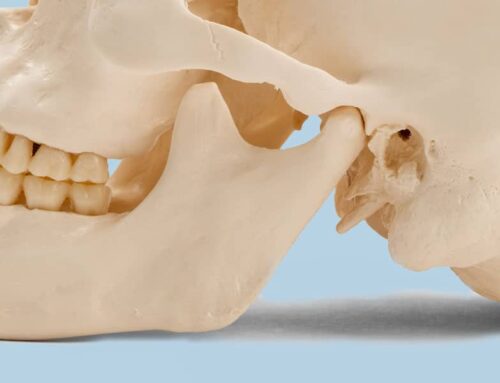You might not consider your jaw as the cause of your headache, but the TMJ(s) (temporomandibular joint) could be the reason behind it.
Your lower jaw (mandible) connects to your skull through the Temporomandibular Joints (TMJs), which facilitates actions such as talking, chewing, and swallowing, and permits your jaw to move in different directions including up and down and side to side.
The temporomandibular joint is more complex than other joints in the body due to its hinge and sliding motions. When something goes wrong, it can cause a range of symptoms, including headaches.
How are TMJ headaches treated?
Doctors often suggest conservative treatments, including:
Lifestyle changes
Making slight changes in the way you use your jaw can be beneficial, such as altering your jaw-related habits:
- avoiding hard or chewy food
- reducing stress to prevent coping behaviors like jaw clenching
- avoiding jaw movements like those that happen with wide yawning, gum chewing, clenching, and/or grinding teeth
Using nonsteroidal anti-inflammatory medications (NSAIDs) such as aspirin (Excedrin), or ibuprofen (Advil), or naproxen (Aleve) for a short period can help alleviate TMJ-induced jaw pain and headache.
To alleviate pain, you can try putting ice packs or moist heat on your jaw. Additionally, doing exercises for your jaw can ease muscle tension and help relieve your symptoms.
What is the outlook for a TMJ headache?
Headaches related to your temporomandibular joint (TMJ) can be relieved by various remedies. If you suspect having TMJ headaches, consult with your doctor about your symptoms and the measures you have taken to relieve the discomfort/pain, even if they haven’t worked.
If your TMJ(s) is causing your headaches, treating the underlying issue can reduce your pain and enable you to take preventive measures to avoid future headaches.


